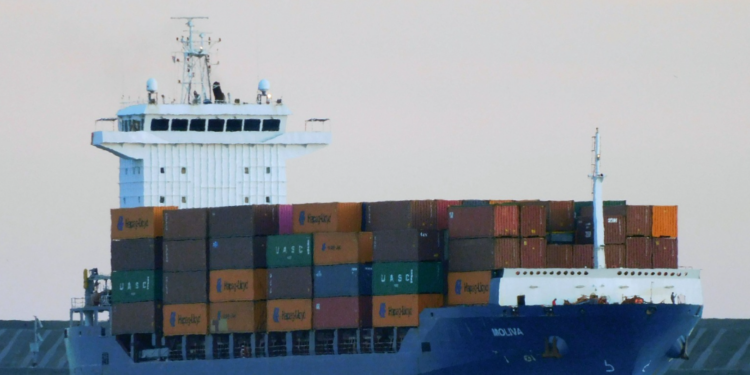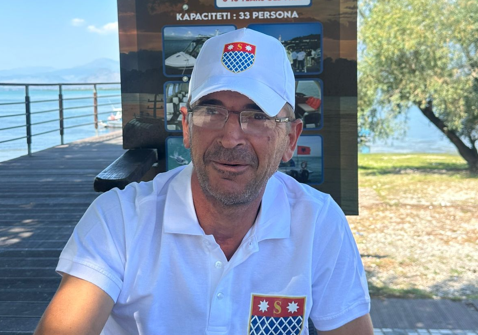Turkish ship carrying suspected hazardous waste seized by prosecution at Durrës Port

The Turkish ship, “Moliva,” transporting 102 containers suspected of containing hazardous waste, anchored early Monday morning in the lineup of the Port of Durrës. By order of the Durrës Prosecutor’s Office, the containers were immediately seized upon the ship’s arrival at the port.
Why is this important: The containers, suspected to be hazardous, were originally shipped in July from Durrës with Thailand as their final destination. Thailand, claiming that the contents were hazardous contrary to what had been declared by the exporting company in the accompanying documents, refused to allow the containers to be unloaded at its ports. The shipment was blocked in Singapore and, according to international law, had to be returned to the country of origin until the contents could be clarified.
Context: The shipment is suspected to contain waste from the ash of metallurgical furnaces. Initial alerts were raised by the NGO “Basel Action Network,” headquartered in Seattle, USA. Jim Puckett, a representative from this organization, arrived in Durrës and commended the Prosecutor’s decision as a positive step but requested that the waste be properly stored, allowing samples to be taken for analysis in three different laboratories. According to Puckett, the first step should be to publicly open the containers, starting from breaking the seals, take samples, and he emphasized that it is standard for the Ministry of Environment and the Prosecutor’s Office to share the samples with independent bodies for significant testing in laboratories. Puckett also noted that the level of waste that has left Albania is beyond permissible levels and he believes that exporting such waste cargoes is harmful to agriculture and the environment. He mentioned that when the industry has waste problems, exporting is not the solution and the issue should be resolved domestically. The dust is suspected to contain high levels of metals like arsenic, lead, and chromium, as well as other chemical residues that pose a risk to public health.


